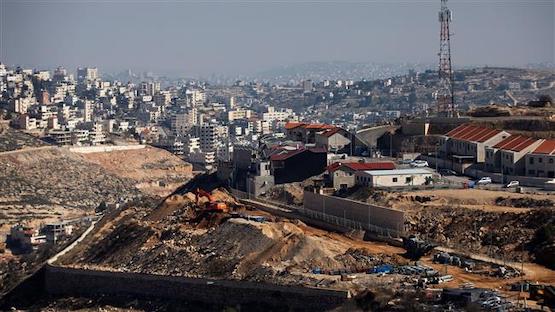
HRW slams Israels discriminatory land policies against Palestinians
Human Right Watch (HRW) has condemned the Israeli regimes discriminatory land policies against Palestinians in the West Bank, besieged Gaza Strip, and elsewhere in the occupied territories, saying while Palestinian communities are squeezed and their residents access to land is being sharply restricted, Israeli-inhabited towns are growing.
The New York-based body, in a report published on Tuesday, said a great proportion of the Palestinian population has been confined to densely-populated towns and villages as a result of the Tel Aviv regimes decades-long discriminatory policies of land expropriation.
It noted that even though Palestinian neighborhoods have little room to expand, Israeli authorities nurture the growth and expansion of nearby predominantly Israeli communities - most of which have been constructed on Palestinian-owned lands.
Moreover, many Israeli-populated towns have admissions committees, which effectively do not allow Palestinians to live there.
The HRW went on to say that the Israeli regime directly controls 93 percent of the land in the occupied territories, including East Jerusalem al-Quds, and the so-called Israel Land Authority (ILA) manages and allocates such pieces of land.
Almost half the members of ILAs governing body apparently belong to an Israeli fund whose explicit mandate is to develop and lease land for Israeli Jews and not any other segment of the population.
Palestinian citizens of Israel constitute 21 percent of the population, but Israeli and Palestinian rights groups estimated in 2017 that less than 3 percent of all land there falls under the jurisdiction of Palestinian municipalities.
Human Rights Watch noted that Israeli authorities have seized hundreds of thousands of dunams of land (10 dunams equals 1 hectare) from Palestinians since 1948, and much of the confiscation took place the following year, when the Tel Aviv regime imposed military rule on most Palestinians in the occupied territories.
During this period, Israeli authorities confined Palestinians to dozens of enclaves and severely restricted their movement. They also used various military regulations and new laws to seize land belonging to internally-displaced Palestinians.
The HRW then underlined that the Israeli regimes policies in recent years have not only failed to overturn earlier land grabs, but have actually further restricted land available for the residential growth of Palestinians.
The group then cited the findings of a 2003 report that "many Arab towns and villages were surrounded by land designated for purposes" such as so-called security zones, regional councils, parks and nature reserves or highways, which "prevent or impede the possibility of their expansion in the future."
Additionally, the Arab Center for Alternative Planning told the HRW that it estimates that 15 to 20 percent of homes in Palestinian towns and villages lack permits, because their owners applications have either been rejected or because they did not apply knowing that Israeli officials would reject their requests.
The group then warned that between 60,000 and 70,000 homes in the occupied territories, excluding Jerusalem al-Quds, are estimated to be at risk of full demolition.
By contrast, in the cases reviewed by Human Rights Watch, Israeli planning authorities have offered sufficient land and zoning permissions to similarly-situated, predominantly Israeli communities to help their growth.
Eric Goldstein, acting Middle East executive director at the HRW, said, "These practices are well-known when it comes to the occupied West Bank, but Israeli authorities are also enforcing discriminatory land practices inside Israel."
SOURCE: PRESS TV
LINK: https://www.ansarpress.com/english/17404
TAGS:






























 online news tv
online news tv




